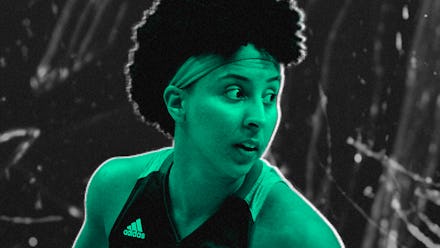As a sexual assault survivor, I walked alone in my shame for years

I am a sexual assault survivor.
As I write these words they still don't feel like they're mine. I never thought they would be. I denied this reality for a long time because I didn't want any of it to be real. It's still difficult to come to terms with my experience. Denial felt safer than having to process and work through my reality.
I want to share my story now because too many of us suffer in silence. For me, it was the shame around being someone that this happened to. I didn't want to be "that girl." It felt counter to everything I valued about myself: strong, independent and smart. I had to work through my own bias around the way I viewed people who experienced sexual assault. I had no idea how much the culture around victims and survivors had influenced my own perceptions. The truth is: None of us are immune to the social misconceptions around sexual assault. There is no immunity, only awareness. Because I didn't want to face this, I walked alone. Isolation is a place where shame thrives.
As I started to come to terms with my experiences, I kept returning to a book I read last year called Daring Greatly. In it, author Brené Brown talks at length about the human experience of shame and how to develop "shame resilience." She explains that shame resilience involves moving toward empathy, courage, connection and compassion and away from fear, blame and isolation. I've learned that it's important to speak shame aloud because its survival depends solely on secrecy, silence and judgment.
Too often, society blames the victims and not the perpetrators. As young girls, we are taught not to go to the bathroom alone, to walk down well-lit streets, to be careful of what we wear. Ultimately, the message is: "Do not put yourselves in a situation where you could be assaulted or raped."
We know what questions people will ask if we come forward:
• How could you have avoided this situation?
• Why did you lead him on?
• Why did you go up to his apartment?
• Why didn't you tell anyone sooner?
• Why did you wear that outfit?
• Why did you drink so much?
• Why did you set your drink down?
Instead, we should be asking:
• Why don't we live in a society where women have a say over what happens to their bodies?
• Why can't women go to the bathroom alone?
• Why do men feel that our bodies are something at their disposal?
• Why do we see men's sexual drive as something innate and out of their control?
• Why are we teaching men that it's OK to assault and rape women?
• Why do we perpetuate the idea that consensual sex is a blurry concept?
Sexual assault is not exclusively experienced by women at the hands of men. Perpetuating this myth makes it more difficult for both parties to come forward if they are assaulted. Instead of teaching how not to get assaulted, we need to shift the narrative from victim responsibility to assailant accountability. This starts with the language around sexual assault.
I walked alone in my shame for years. I only recently told my girlfriend, and she was the first person I ever shared my story with. That's a long time to carry something. Something that I should not have felt I had to carry. I am speaking up because I want people to know that it can happen to anyone, that you are not alone and that it was not your fault.
That starts by us being aware of how we participate in this toxic culture. That's being aware of how we blame the victims. That's not participating in rape jokes because there is not one thing funny about rape. It's calling out and disrupting this culture when you see or hear it. Every single one of us can help combat sexual assault by educating ourselves
For more information and resources, check out www.rainn.org.
Layshia Clarendon is joining five other professional athletes in the fight against sexual assault with the “Athletes United” project — learn about it here.